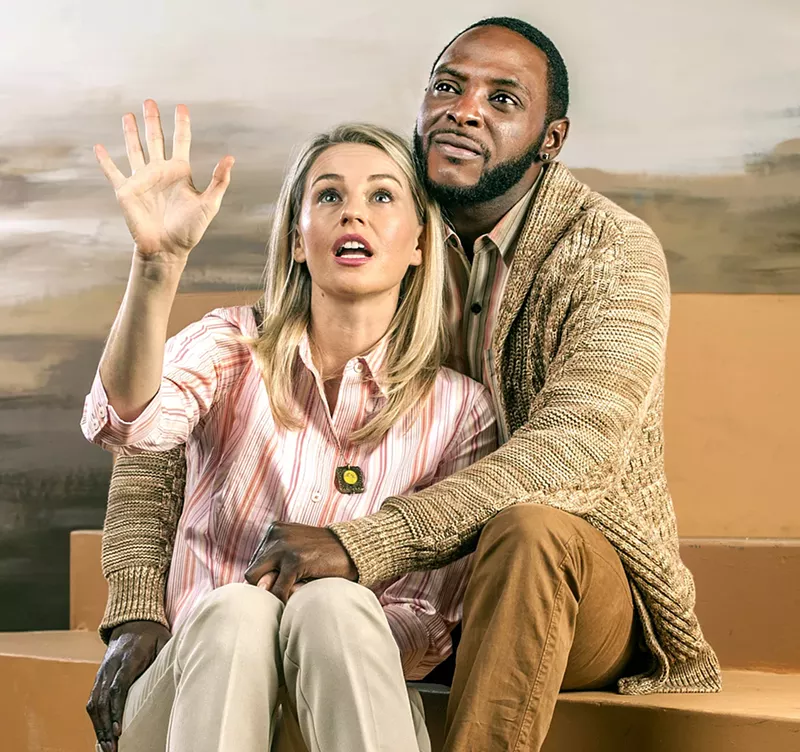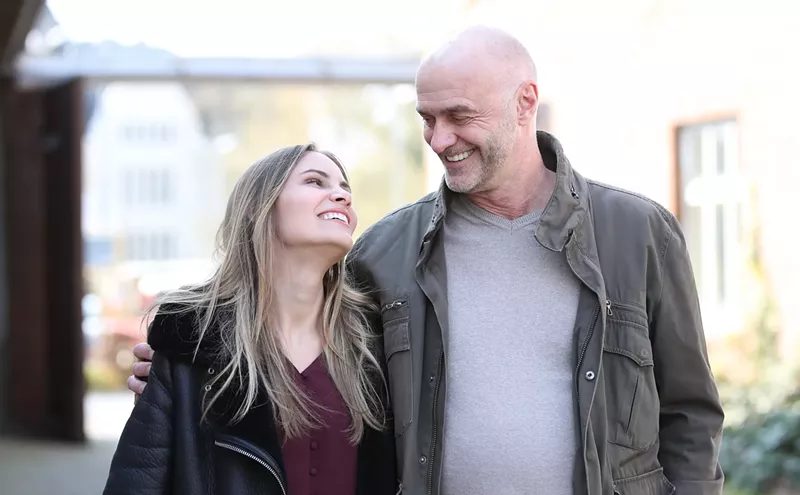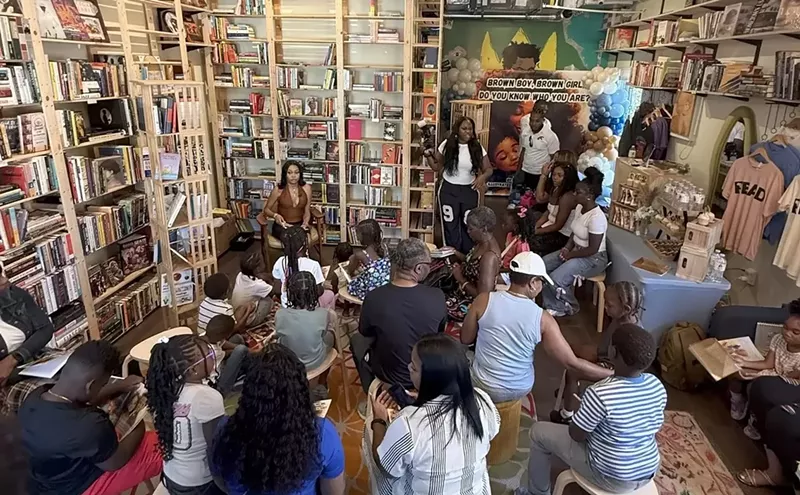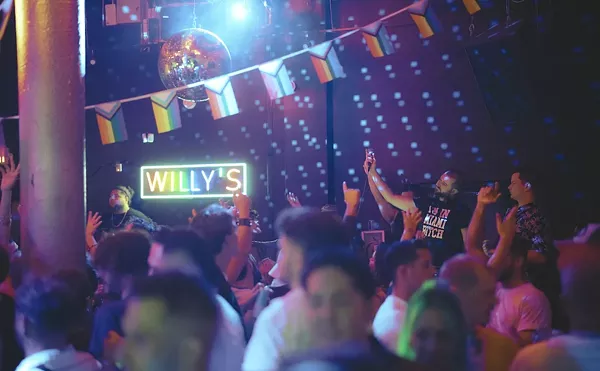Tucked away in the shadows of the southwest corner of the Grand Canyon in Arizona is a small, seemingly inconsequential village called Supai, where the now roughly 500 Havasupai people live. The mostly reclusive tribe is at the center of Informed Consent, an engrossingly fascinating play written and directed by Deborah Zoe Laufer, opening this weekend at GableStage at the Biltmore. Informed Consent digs into the multilayered complexities of what is morally right and how much of the envelope should be pushed when matters of religious belief and science clash.
"I like to write about where science and religion brush up against each other uncomfortably," Laufer tells New Times. "And in this case, that's definitely what happened."
Does DNA decide not only where we come from but also what we're meant to be? That question is the starting point of Laufer's existential-conflict story, which is largely based on the real-life case Arizona Board of Regents v. the Havasupai Reservation. In 1990, researchers from Arizona State University discovered that the tribe had an usually high number of cases of type 2 diabetes. Geneticists figured that the tribe was remote and isolated enough to provide a strong case study and came up with a plan to collect blood samples from tribe members to discover whether genetics was the reason for such a spike in cases. But perhaps due to ignorance, or maybe because of a single-minded attempt to help mankind, the case ultimately brought up serious ethical and moral questions.
"The tribe considers blood sacred and had never given it for any such study of any kind," Laufer says.
Things were further complicated when the researchers got into the genetics portion of their study, which is where Laufer found inspiration for Informed Consent. "This tribe believed that its people had sprung forth from the Grand Canyon," she says. "The scientists who did the studies on their origin found that the tribe had originated from Eastern Asia, and that kind of devastated the tribe."
From this case came Laufer's play, which centers around a fictitious genetic anthropologist named Jillian who finds herself in potential ethical and personal dilemmas of her own: Jillian's mother died at a young age from complications brought on by early-onset Alzheimers, and Jillian fears that not only has that gene been passed down to her, but that she may have passed it on to her own young daughter. So when Jillian is approached to help a native tribe dealing with a spike in type 2 diabetes, she jumps at the chance. Jillian is so driven to find the genetic makeup that could save her and her daughter that she dives into her work without thinking much about the moral consequences.
"I like to write about where science and religion brush up against each other."
tweet this
Laufer says she used Jillian as way to communicate the complex challenges brought on by the Havasupai case.
"I gave her a personal story, genetically, that was equally morally ambiguous to the tribe's case," Laufer says. "Her husband doesn't want their daughter to be tested for a genetic problem, but she does. So on the home front, there's conflict that is sort of juxtaposed to the larger, global conflict."
The crux of the conflict came when the tribe learned their blood was being used to study genetic diseases without their consent. That led to the lawsuit and, with it, many uneasy questions. Informed Consent, which first debuted at the Duke on 42nd Street in New York in 2015, steers clear of the legalities of the case and instead focuses on the bigger moral issues such as race, religion, and cultural sensitivity. Genetic research is a fantastic tool to fight devastating illnesses, but what are the ethical boundaries? Are there any boundaries at all when it comes to life-saving science and sacred ancient beliefs? Of course, there are no easy answers. And that's what Informed Consent looks to explore in an impartial, thoughtful, and intelligent way that grapples in the gray.
"I like to write about moral ambiguity," Laufer says. "I don't like good guys or bad guys. It's much more interesting to write about a subject matter where it's not so clear on who is right and who is wrong. It challenges the audience to think about some uncomfortable issues."
GableStage art director Joseph Adler first secured the rights to stage Informed Consent, then approached Laufer to direct the play after watching her direction of The Three Sisters of Weehawken at FAU Theatre Lab last year. As with most GableStage productions, Informed Consent sets out to make its audiences feel, question, and have conversations once the lights go up. And Laufer says the questions raised in her play are ones we should be asking ourselves anyway.
"You know, when I was having a child, we didn't have these issues because we didn't know what we know now," she says. "We're living in a time where we have to ask ourselves new questions about what we want to know. What are the boundaries in maybe harming others for your own loved ones? What is identity? If you could trace your genome, are you the sum of your parts? Can you decide who you are? These are the ultimate questions of the play."
Informed Consent. Saturday, July 29, through August 27, at GableStage at the Biltmore, 1200 Anastasia Ave., Coral Gables; 305-445-1119; gablestage.org. Tickets cost $60.













